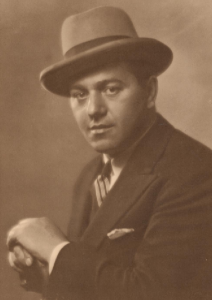Podcast: Play in new window | Download (Duration: 1:27:13 — 106.5MB) | Embed
Subscribe: Spotify | TuneIn | RSS | More
Today I present to you the American lyric tenor Frank Lopardo, who from 1984 through 2014 appeared in all the major opera houses of the world, celebrated particularly for his Mozart and Rossini roles. Too often today these superb singers even from the recent past are forgotten by today’s audiences, and my listeners know that it is always a mission of mine to celebrate great artists who, for whatever reason, are not in the forefront of the public’s awareness. In Frank’s case, I suggest it has absolutely nothing to do with his stellar voice and astounding technique. Some singers are content to do their job and live their lives and serve the music and the art form to the best of their considerable abilities without engaging in antics or self-destructive behavior. A quick glance at Frank’s accomplishments and the musicians with whom he collaborated makes it immediately clear that his career unfolded naturally and organically at the highest levels. Today’s episode explores the infinite variety of Lopardo’s artistry and his impeccable musicianship and technique, which aided him in his pursuit of always discovering new aspects of the central roles in his career. Conductors with whom he collaborated (and as heard on the episode) include Georg Solti, Claudio Abbado, Ion Marin, Riccardo Muti, Robert Spano, and the late Seiji Ozawa. While Lopardo was never tempted to move outside the natural confines of his lyric voice, he did in the final years of his career, move into some of Verdi’s larger lyric tenor parts, in operas like Un ballo in maschera and Simon Boccanegra, both of which are sampled here. We also hear Frank in duet with some of his favorite colleagues, including memorable Chilean sopranos Verónica Villarroel and Cristina Gallardo-Domâs. It was all I could do not to entitle this episode Lopardopalooza, ‘cause that’s exactly what it is!
Countermelody is a podcast devoted to the glory and the power of the human voice raised in song. Singer and vocal aficionado Daniel Gundlach explores great singers of the past and present focusing in particular on those who are less well-remembered today than they should be. Daniel’s lifetime in music as a professional countertenor, pianist, vocal coach, voice teacher, and journalist yields an exciting array of anecdotes, impressions, and “inside stories.” At Countermelody’s core is the celebration of great singers of all stripes, their instruments, and the connection they make to the words they sing. By clicking on the following link (https://linktr.ee/CountermelodyPodcast) you can find the dedicated Countermelody website which contains additional content including artist photos and episode setlists. The link will also take you to Countermelody’s Patreon page, where you can pledge your monthly support at whatever level you can afford.

